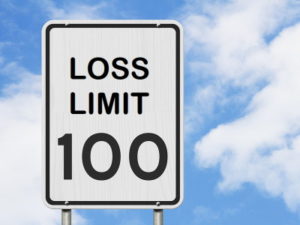Campaigners Seek Online Limits Despite Looming Threat of Black Market Benefit
 As we roll on towards the year of 2022, there is the lingering threat of upheaval in the United Kingdom’s gambling sector. With the Gambling Commission currently presiding over the update to the Gambling Act 2005, operators of online gambling services are waiting reluctantly on the whitepaper to be published on such next year. Doubtless, those of us who enjoy a punt or two at our favourite online sportsbook or casino will also be waiting to see what effects the changes will have on us. Rumours have been circulating about numerous alterations to be brought into play with the new version of the Gambling Act.
As we roll on towards the year of 2022, there is the lingering threat of upheaval in the United Kingdom’s gambling sector. With the Gambling Commission currently presiding over the update to the Gambling Act 2005, operators of online gambling services are waiting reluctantly on the whitepaper to be published on such next year. Doubtless, those of us who enjoy a punt or two at our favourite online sportsbook or casino will also be waiting to see what effects the changes will have on us. Rumours have been circulating about numerous alterations to be brought into play with the new version of the Gambling Act.
One of the largest changes on the cards is the intent to limit online deposits, stakes, and losses. As was the case with fixed odds betting terminals in the UK in recent years, the maximum a player may possibly be able to bet on online games could be reduced down to £2 per round. A group of highly prominent figures in the UK governmental scene have called for such changes to be introduced on several occasions. The proposal for this adjustment was brought up in a meeting at Parliament, backed not only by various government officials, but religious leaders at the same time. Within that group, former Conservative leader Iain Duncan Smith has been largely vocal about the opinions on gambling.
He has been joined in his crusade against the industry with 100 other Members of Parliament, as well as 18 bishops. Altogether, over 160 individuals have backed the proposal to cap betting and deposit limits at online casinos.
A Letter Sent Onwards to National Newspaper
 To try and enforce their opinion on the gambling scene, a letter was sent to The Telegraph from the campaigning group, which demanded “bold” reforms to curb issues surrounding gambling addiction. That letter warned of the fact that over 55,000 children between 11 and 16 are diagnosed as problem gamblers in the UK. Data from Public Health England was referenced within that letter, drawing more attention to this fact. At the same time, it was noted that various negative effects can be experienced by problem gambling, and not only by those directly involved with it. The families, friends, and social aspect of a person’s life can all be disrupted.
To try and enforce their opinion on the gambling scene, a letter was sent to The Telegraph from the campaigning group, which demanded “bold” reforms to curb issues surrounding gambling addiction. That letter warned of the fact that over 55,000 children between 11 and 16 are diagnosed as problem gamblers in the UK. Data from Public Health England was referenced within that letter, drawing more attention to this fact. At the same time, it was noted that various negative effects can be experienced by problem gambling, and not only by those directly involved with it. The families, friends, and social aspect of a person’s life can all be disrupted.
Of course, the fact that this letter has only been sent to the newspaper right now is of no coincidence. With the review of the Gambling Act currently ongoing, and the new framework expected to be introduced next year, the campaigners will likely be trying to get their point across via numerous media forms.
The group also went on to cite pieces of data relating to the cost of gambling addiction in the UK. Every year, the group highlighted, it costs £1.27 billion to the taxpayer. By limiting the amount that people are able to bet via the online sphere, there would be a reduction in the cost and impact on society, they said.
A line from the submitted letter reads:
“It is time for the Government to live up to the Conservatives’ 2019 manifesto commitment to a review of gambling laws, levelling up, social justice and a better future for us all”.
Should the suggested proposal be enforced in modern law, then it could mean that gamblers in the UK are restricted to a maximum betting amount of £100 per month online. At the same time, the changes would mean much stricter protocol for operators to follow with regard to affordability checks. This would ensure that their registered users do not spend more than they can afford to do so. And as it happens, a couple of operators have already imposed certain limitations on customers in relation to this. Flutter Entertainment, for example, introduced a monthly cap on losses for younger gamblers.
It is only through the utilisation of such drastic measures that there can be a decline in compulsive gambling, says the group. Yet according to figures from the Gambling Commission, problem gambling is already on the decline in the country. According to official figures released by the regulatory body, between June 2020 and June 2021, the number of people considered to be a moderate risk factor is down from 1.4% to 0.7%.
Other Changes Expected in the New Legislation
 It is not only the amount of money that bettors can spend and deposit when it comes to gambling that will potentially be affected, but also the time it takes between spins or hands in a casino game. Calls have been submitted for a 30-second gap to be enforced between each slot machine spin, to ensure that gamblers have the time to think about how long they have spent playing and take control of their money in the process.
It is not only the amount of money that bettors can spend and deposit when it comes to gambling that will potentially be affected, but also the time it takes between spins or hands in a casino game. Calls have been submitted for a 30-second gap to be enforced between each slot machine spin, to ensure that gamblers have the time to think about how long they have spent playing and take control of their money in the process.
It is also thought that the common VIP schemes that many online casino sites provide will be curbed and likely eradicated altogether. Studies have shown that both fraud and problem gambling issues are far more likely to occur with those gamblers deemed VIP players. Therefore, adjustments and/or restrictions are very likely to happen in regard to these. In the same vein, loyalty points and similar rewards schemes are often linked to VIP programs, meaning that these will also be likely to take a hit.
Deposit protection is something else that is heavily being focused on. As things stand at the moment, the Gambling Act 2005 does feature deposit protection, but it does not currently force companies to protect player funds in case they go bankrupt. At the moment, the majority of betting companies licensed in the UK have no protection in place for this, so if they were to go bust, there is no guarantee in place that players would get their money back. It is therefore likely that the new act will bring in stricter measures to enforce deposit protection for gamblers.
TV and sport advertising, as well as sponsorship in relation to this, will also likely be targeted. Sporting events are watched by many younger people, and it is believed that the number of advertisements for gambling via television commercials and kit sponsorship is at a dangerous level. Co-operating with the Advertising Standards Authority (ASA), the new act may provide rules around this as a way of reducing the number and the types of ads shown on TV.
Black Market Looming?
 There has always been a black market for gambling, this is partly what influenced the government to license off track gambling and introduce betting shops in 1961. The growth of online gambling, however, has provided new verticals for black market gambling. In fact, the 2005 Act was initially brought in in part because online gambling was an unregulated wild west at the time. By licensing operators it ensured that to accept UK customers companies had to abide by gambling legislation and responsible gambling procedures.
There has always been a black market for gambling, this is partly what influenced the government to license off track gambling and introduce betting shops in 1961. The growth of online gambling, however, has provided new verticals for black market gambling. In fact, the 2005 Act was initially brought in in part because online gambling was an unregulated wild west at the time. By licensing operators it ensured that to accept UK customers companies had to abide by gambling legislation and responsible gambling procedures.
Still, while it is technically illegal for a site to accept bets from a UK customer if they don’t have a license does not mean it doesn’t happen. The UKGC and other bodies work hard to block unlicensed websites but ultimately new ones crop up every day. The onus at the minute is on the customer to ensure they gamble with licensed operators as they have no legal protections if they gamble on the black market, including making them liable to fraud, identity theft or simply the site refusing to pay them out.
Ultimately the fear is that the more regulation is imposed on licensed sites, such as, deposit and stake limits, affordability checks, etc., the more people will be tempted by the black market despite the risk. Only time will tell how much of a problem this may be, although, polls have shown that punters may be more prepared to gamble this way if new rules are heavily restrictive.



